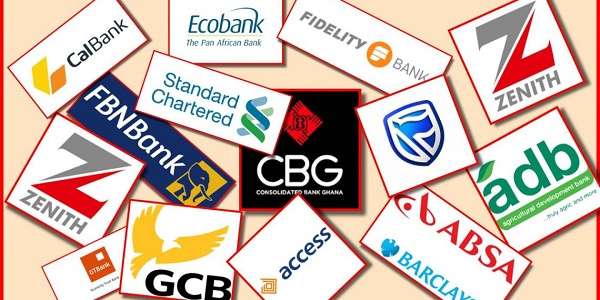The Bank of Ghana (BoG) has issued a directive to all Banks, Specialized Deposit-Taking Institutions (SDIs) and Non-Bank Financial Institutions (NBFIs) to incorporate in credit agreements a summary of lenders’ rights of enforcement of loan and collateral agreements.
This directive is in line with all repayment and recovery of debt provisions set forth under Sections 59 to 75 and other relevant sections of the Borrowers and Lenders Act, 2020 (ACT 1052).
The Bank of Ghana as the regulator of the banking sector, highlighted that it has the mandate to promote and support the development of a fair, transparent, competitive and accessible credit market under Section 76 of Act 1052, as well as ensure improved disclosure during the lending process.

As such, it urged all Banks, SDIs and NBFIs to take note of the above and be guided accordingly. The Bank of Ghana assured that its doors are always open and has therefore, urged banks and customers alike, to seek further enquiries should the need arise.
In a Notice, the Bank of Ghana provided detailed information on the rights and obligations of lenders under the Borrowers and Lenders Act.
“Banks, Specialized Deposit-Taking Institutions (SDIs) and Non-Bank Financial Institutions (NBFIs) (regulated by the Bank of Ghana) are reminded that the Borrowers and Lenders Act, 2020 (ACT 1052) provides for the rights and obligations of borrowers and lenders. In the event that borrowers fail to meet their obligations set out under credit agreements, lenders have a right to enforcement under Act 1052”.
Bank of Ghana
Processes for recovery of debts owed to lenders
The Bank of Ghana stated that sections 59-75 of Act 1052 specifically enumerate processes for recovery of debts owed to lenders.
Detailing some of the relevant provisions on repayment and recovery processes under Act 1052, BoG stated that where an event of default arises under a credit agreement, the lender shall give a notice of default to the borrower in writing and request the borrower to pay the amount due within thirty (30) days after the date of receipt of notice.

“However, where the collateral is perishable, the lender shall give a notice of default in writing to the borrower and request the amount due immediately”, portions of section 60 of Act 1052 states. BoG indicated that the lender may deliver the notice personally by hand, courier service, registered mail, or any other means agreed upon by the lender and the borrower in the credit agreement.
Remedies of the Lender on Default by the Borrower
Commenting on the remedies of the lender on default by the borrower which is contained in Section 61 of Act 1052, Bank of Ghana underscored that the lender upon satisfaction of the requirements under section 60, may decide to sue the borrower on any covenant to perform under the credit agreement.
BoG however noted that where a security interest is registered under Act 1052, the lender may “realize the interest in the collateral without initiating proceedings in court”. Also, the lender may decide to appoint a Receiver or Manager to realize the security interest on behalf of the lender.
“A lender who intends to realize a security interest without a court order shall register a notice of that intention with the Collateral Registry Department of the Bank of Ghana. Where all requirements have been met, the Registrar shall certify the realization process by issuing a certificate known as the Memorandum of No Objection to the lender. The Memorandum of No Objection shall remain valid until a time when the collateral has either been sold, retained by the lender or redeemed by the borrower”.
Bank of Ghana
A Lenders’ Right of Possession
The Bank of Ghana stated that where a security interest is realized in accordance with section 61(1)(b), the lender may take possession of the collateral or render the collateral unusable without removal.

BoG further disclosed that a lender who has the right to take possession of property that is subject to a security interest may enforce that right without initiating proceedings in court for that purpose, and is not required to give notice to the borrower before repossessing or rendering the collateral unusable.
Touching on realization of collateral after default, BoG stated that Section 66(1) of Act 1052 provides that, collateral may be realized either by auction, public tender, private sale or any other method provided for in the credit agreement.
READ ALSO: Economic Context Affected Ghana’s Press Ranking- Jefferson Sackey



















